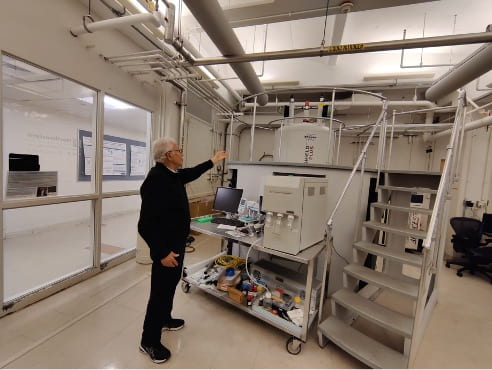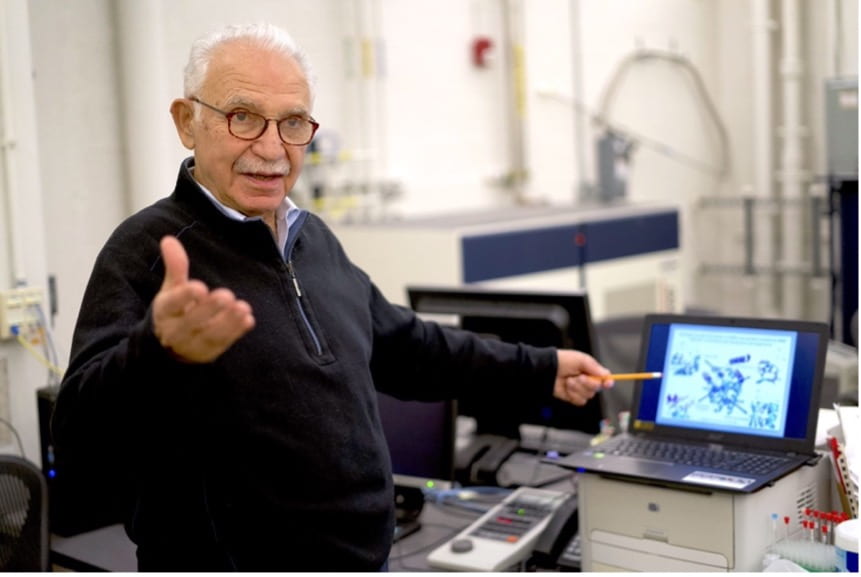
Dr. Alexandros Makriyannis with some of the equipment his lab uses to find the newest treatments for a many diseases
The NUMedia team recently had the pleasure of interviewing the Director of the Center for Drug Discovery (CDD) at Northeastern, Dr. Alexandros Makriyannis.
Drug discovery is a multidisciplinary activity and the CDD is working on a wide range of projects spanning chemistry, biology and biophysics. CDD has a team of around 50 research professors and post-doctoral scholars; it also provides a great platform for students to get involved in these projects.

The CDD’s primary of focus of drug discovery research is identifying new candidates of drugs based on the structure of the target molecule in our body. Dr. Makriyannis describes this target-based drug discovery model by using a lock-key analogy. There are multiple receptors (locks) in our body which bind to certain ligands (keys), resulting in biological activity. Similar to lock and key interactions, receptor-ligand binding is highly specific, i.e. the ligand has to be structurally compatible with the receptor for the two to interact.
The CDD focuses on finding the keys that fit these locks in our body to serve as therapeutics. His primary project is in the cannabinoid receptor domain. Yes, you heard that right, cannabis not just makes you high but has medicinal properties too and has been shown to treat conditions related to low appetite and post-traumatic stress disorder (PTSD). The lab has determined two cannabinoid receptors, CB-1 and CB-2, to be the respective keys to the locks that control neurological activity related to these conditions.
Our body is extremely smart, creating certain molecules only when needed, and turning them off via various catalysts once the molecules are done doing their job. Dr. Makriyannis and his team are leveraging this mechanism to regulate the activities of these receptors, hopefully to treat multiple diseases via one target.
In fact, the lab already has two drugs in the works based on cannabinoids. Both have been proven to work in animal model studies in advanced preclinical trials. One drug, for alcohol addiction, has won a grant from National Institute of Alcohol Abuse. Another drug has shown promise as a treatment for fibrosis in the kidney. They’re hoping to receive approval from FDA soon to test these drugs on humans. If approved, these drugs have the potential to impact lives of millions of patients.
Dr.Makriyannis’ message to young scientists at Northeastern is “ It’s a good place to be in. Science gives a framework to make your life very interesting, and it’s important to do interesting things in life”